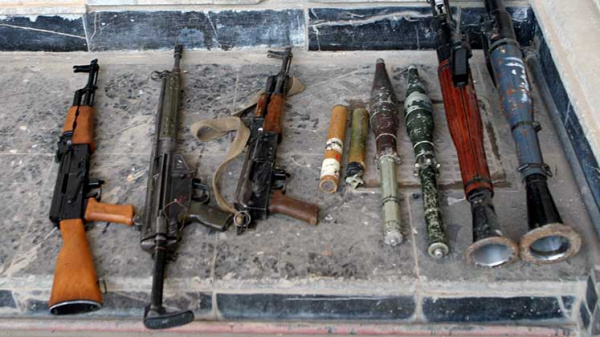When ammunition or weapons are diverted, how can affected parties respond? What measures can governments and other stakeholders take after discovering diversion to prevent its recurrence?
This virtual event focused on how unpacking recent diversion cases can help inform effective diversion prevention and mitigation measures. Based on an anonymised case study from Conflict Armament Research, this event detailed the experience of an Arms Trade Treaty (ATT) State Party and how they responded to a diversion case by implementing post-shipment verification measures to verify that transferred weapons were in the custody of a specific end-user.
A recording of the event is available below.
Panellists also discussed the importance of international cooperation and information-exchange platforms, such as the ATT’s Diversion Information Exchange Forum (DIEF), and other useful tools that enable States to learn from concrete cases of suspected or detected diversion.
This event was co-organised by UNIDIR, Conflict Armament Research and Stimson Center as part of the project entitled “Strengthening Shared Understanding on the Impact of the Arms Trade Treaty in Addressing Risks of Diversion in Arms Transfers”
PROGRAMME:
Opening Remarks:
-
Nicolas Bieri, Swiss State Secretariat for Economic Affairs (SECO)
Panellists:
-
Rob Perkins, Conflict Armament Research
-
Anna Mensah, United Nations Institute for Disarmament Research
-
Tom Nijs, Chair of the ATT Diversion Information Exchange Forum
Moderator:
-
Rachel Stohl, Stimson Center
WHEN & WHERE:
28 April 2022, 16:30-18:00 CEST / 10:30-12:00 EST, online.
